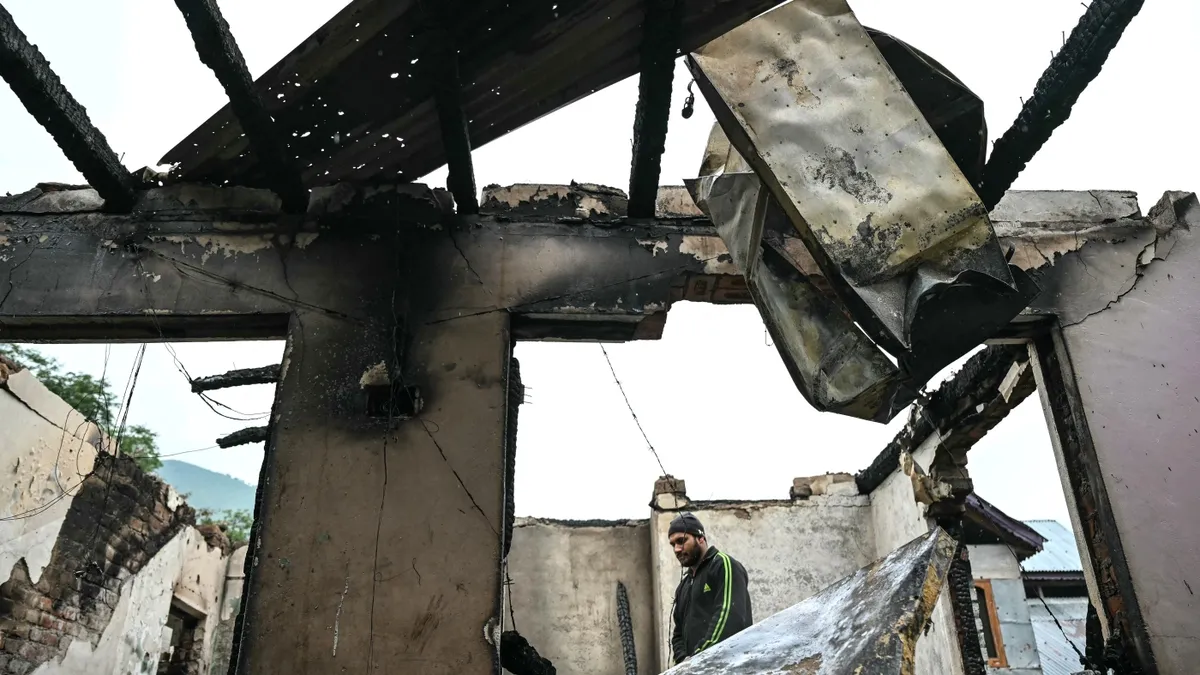
The Pakistan Army has reported the successful interception of 25 military drones that ventured over populated areas, including the city housing Pakistan's General Army Headquarters. By Thursday evening, residents in border towns in India reported hearing blasts, prompting authorities to implement blackouts in various regions along the border. In a move to mitigate rising tensions, Secretary of State Marco Rubio engaged in discussions with both the Pakistani Prime Minister and the Indian Foreign Minister, urging immediate de-escalation from both nations.
This recent surge in hostilities follows a series of missile attacks launched by India across Pakistan early Wednesday morning. The conflict, which has seen nuclear-armed nations on the brink of escalation, began after a tragic incident on April 22, where gunmen killed 26 people, mostly tourists, in India-administered Kashmir. This was the deadliest assault on Indian civilians since 2002 and fueled outrage across India, particularly as eyewitnesses claimed that the attackers specifically targeted Hindu men. Pakistan has vehemently denied any involvement in the incident.
In the early hours of Wednesday, India conducted strikes against what it termed "terrorist infrastructure" across Pakistan. These operations marked one of the most extensive military actions between the two nations since their conflict in 1971. India characterized these strikes as acts of retribution, while Pakistan reported that the attacks resulted in the deaths of 31 individuals, including children. The Pakistani military claimed to have downed five Indian aircraft, although India did not acknowledge this claim. Conversely, India accused Pakistan of killing 16 civilians through cross-border fire.
Amidst escalating tensions, the U.S. Consulate General in Lahore, Pakistan, instructed its staff to shelter in place, and operations were suspended at airports near the border in both India and Pakistan. In border regions, schools were closed as families prepared for potential emergencies. Parents in a Pakistani WhatsApp group exchanged checklists of essential items, emphasizing the need to "stay calm and prepared."
On Thursday morning, residents in Lahore, Pakistan's second-largest city, reported hearing blasts near an old airport. Muhammad Abbas, a local groundskeeper, noted that while some were frightened by the noise, most residents carried on with their daily lives, stating, "Pakistani people are not cowards who hide in their houses." The blasts were linked to one of the drones, which had reportedly engaged a military target near Lahore, resulting in injuries to four army personnel.
As tensions continued to escalate, reports emerged of blasts in Indian-administered Kashmir, particularly in the towns of Jammu, Achabal, and Anantnag. An Indian army spokesperson confirmed that districts along the line separating Indian and Pakistan-controlled Kashmir were placed on high alert. Indian residents gathered to observe security forces investigating a fallen projectile in the village of Makhan Windi, located approximately 25 miles from the Pakistani border. The atmosphere remained curious rather than fearful, although in the town of Poonch, many residents fled following Pakistani shelling, which tragically claimed the lives of local children.
While the conflict captured public attention, human rights activists reported that Indian authorities detained over 30 Rohingya refugees in the capital, exacerbating the humanitarian situation. David Nazir, whose family members were detained, expressed deep concern for their safety. Legal representatives claimed the government exploited the ongoing tensions to detain vulnerable individuals, without response from Delhi police despite repeated inquiries.
In discussions with Pakistan's Prime Minister, Secretary of State Rubio reiterated U.S. support for direct dialogue, emphasizing the importance of open communication between India and Pakistan. According to Praveen Donthi, a senior analyst with the International Crisis Group, the international community must take the escalating conflict seriously, warning that both nations possess nuclear capabilities. The potential for a miscalculation or mistake is substantial, raising significant concerns about regional stability.
Donthi highlighted that the United States, with its historical ties to Pakistan and growing relationship with India, is uniquely positioned to mediate the situation and facilitate dialogue. As tensions rise, the world watches closely, hoping for a resolution that ensures peace between these two powerful nations.